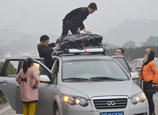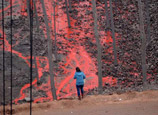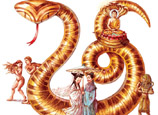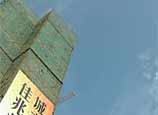
China's short-term lending rates were mixed Tuesday despite a record cash injection made by the central bank through its normal open market operations, a move which experts say is aimed at easing liquidity pressures ahead of the Chinese New Year holiday.
The People's Bank of China (PBC) pumped 450 billion yuan ($72.16 billion) into the interbank market through 14-day reverse repurchase agreements (repos) at a bid rate of 3.45 percent Tuesday, marking the highest single-day injection in history, according to a notice published on the central bank's official website.
Specifically, the PBC will inject at least 252 billion yuan in net capital into the market this week, offsetting the maturity of 98 billion yuan in reverse repos Tuesday and 100 billion yuan the coming Thursday.
"The open market operation is mainly aimed at ensuring that the market will have enough liquidity to last through the approaching Chinese New Year holiday, which will last from February 9 to 15," a bond trader at a State-owned bank in Shanghai, who preferred to remain nameless, told the Global Times Tuesday.
"Money rates are largely mixed today, indicating that the interbank market still has a relatively tight capital supply in spite of the record cash infusion," he went on to say.
The benchmark weighted average seven-day repo rate, a benchmark of borrowing costs in the domestic market, fell 13.52 basis points to 3.3343 percent, down from 3.4695 percent Monday; while the 14-day repo rate climbed 15.83 basis points to 4.0640 percent, with the one-day repo rate up 40.15 basis points to 3.2639.
"Demand for cash withdrawal by individuals is usually huge ahead of the Spring Festival, resulting in tightened liquidity," he explained.
"At present, the money supply in the interbank market may only fluctuate due to short-term factors like the pre-holiday squeeze, so it is understandable if the central bank uses the more flexible reverse repos to ease temporary liquidity shortages," he added.
















 A 9-year-old girl and her father are traveling to 31 major cities across China on foot and by hitchhiking.
A 9-year-old girl and her father are traveling to 31 major cities across China on foot and by hitchhiking.


![]()
